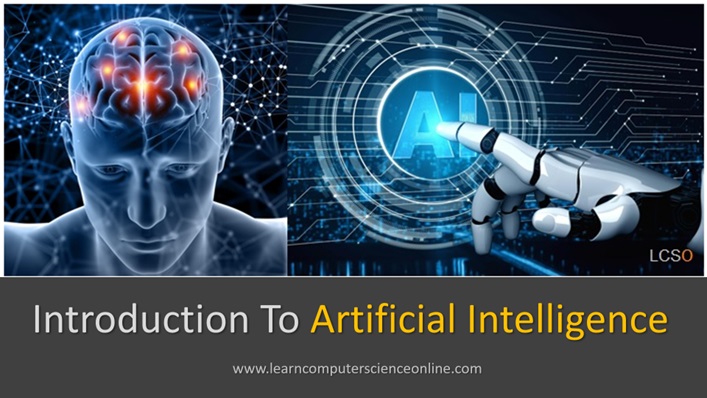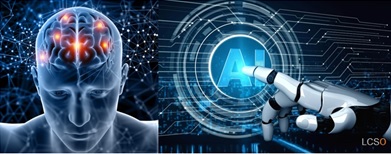
Artificial Intelligence
Introduction To Artificial Intelligence
Introduction To Artificial Intelligence.
Artificial Intelligence Or AI, refers to the ability of machines and computer systems to perform tasks that typically require human intelligence, such as understanding natural language, recognizing patterns, and making decisions. AI intends to simulate human behaviour into the machines.
AI is one of fastest evolving technologies that rely on various techniques, including machine learning, deep learning, natural language processing, and computer vision, to enable machines to learn and improve over time without being explicitly programmed to do so.

AI is used in a wide range of applications, from autonomous vehicles and voice assistants to healthcare, finance, and manufacturing. The field of AI is rapidly advancing, and it has the potential to transform the way we live and work in the future.
AI, or artificial intelligence, refers to the development of computer systems that can perform tasks that typically require human intelligence, such as visual perception, speech recognition, decision-making, and natural language processing.
AI involves designing algorithms and computational models that enable machines to learn from data, make predictions, and optimise their performance by analyzing previous data and trends over a period.
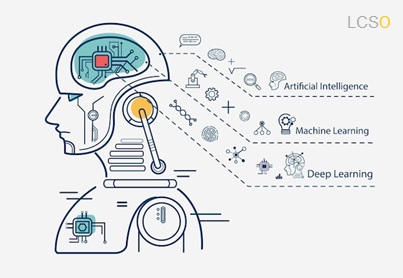
Some of the most common examples of AI applications include image recognition, language translation, autonomous vehicles, and personal assistants like Siri and Alexa. AI has the potential to transform many industries and improve our lives in numerous ways.
AI is one of the fastest growing fields in Computer Science. In this simple introduction to AI , you will learn what is AI, different fields of study under AI such as data science, machine learning, deep learning, robotics, computer vision, cognitive computing, and other important topics and subsets under AI.
Introduction To Artificial Intelligence.
What Is Artificial Intelligence ?
Table Of Contents
Importance Of AI
Significance Artificial Intelligence
AI, or artificial intelligence, is increasingly important in today’s world because it has the ability to analyse large amounts of data and make predictions and decisions based on that data. This can help organisations automate processes, improve efficiency, and gain insights that would not be possible through manual analysis.
AI is also important because it has the potential to solve complex problems and create new opportunities across many different fields, including healthcare, finance, transportation, and education. For example, AI can help doctors diagnose diseases more accurately, financial institutions detect fraud more quickly, and autonomous vehicles navigate roads more safely.
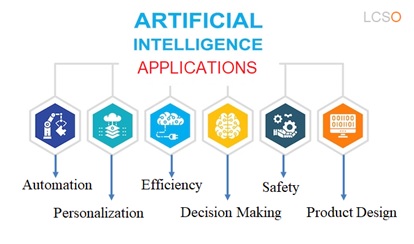
Moreover, AI can free up human resources and time to focus on more creative and higher-level tasks. AI systems can perform repetitive, tedious, and dangerous tasks more efficiently and consistently than humans, allowing humans to focus on innovation and strategic decision-making.
Overall, the importance of AI lies in its ability to enhance productivity, improve decision-making, and provide new opportunities for growth and innovation in various industries.
How Does AI Works ?
AI, or artificial intelligence, works by using algorithms and statistical models to analyze data and identify patterns. There are different types of AI, but most AI systems involve the following components:
The accuracy and effectiveness of AI systems depend on several factors, such as the quality and quantity of data, the complexity of the algorithms, and the quality of the training process. AI systems can be used for a wide range of applications, such as image and speech recognition, natural language processing, and decision-making.
However, AI is still an evolving science and not a replacement for human intelligence, and it has its limitations. Therefore, it is important to use AI responsibly and ethically.
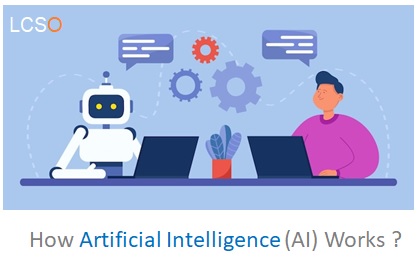
- Data: AI systems require large amounts of data to learn and make predictions. The data can come from various sources, such as sensors, cameras, and databases.
- Algorithms: AI algorithms are mathematical models that process the data and learn from it. There are different types of algorithms, such as decision trees, neural networks, and support vector machines.
- Training: AI systems need to be trained on data to learn and improve their accuracy. The training process involves feeding the AI system with data and adjusting the algorithms until the system can accurately predict outcomes.
- Inference: Once an AI system has been trained, it can make predictions or perform tasks based on new data. This process is called inference, and it involves using the trained algorithms to process new data and produce a result.
Introduction To Artificial Intelligence.
Subdomains Of AI
Important Subjects And Topics In AI
Artificial Intelligence (AI) is a vast and interdisciplinary field that covers many topics and subdomains. Some of the main topics in AI include:
- Machine Learning: Machine learning is a type of AI that involves training computers to learn from data, without being explicitly programmed.
- Deep Learning: A subfield of machine learning that uses deep neural networks to model complex patterns in data.
- Natural Language Processing (NLP): A branch of AI that deals with the interaction between computers and human language, including tasks such as language translation, sentiment analysis, and language generation.
- Robotics: The study of robots and their design, construction, operation, and application in various fields such as manufacturing, healthcare, and entertainment.
- Computer Vision: The ability of computers to interpret and understand visual data from the world, including images and videos.
- Expert Systems: Computer programs that are designed to replicate the decision-making abilities of a human expert in a particular field.
- Intelligent Agents: Computer programs that are capable of autonomous action in a complex, dynamic environment.
- Knowledge Representation: The study of how to represent and reason about knowledge in a computer system.
- Cognitive Computing: A type of AI that aims to replicate the way the human brain works, including aspects such as perception, reasoning, and learning.
- Ethics in AI: The study of ethical considerations in the design, development, and deployment of AI systems.
Introduction To Artificial Intelligence.
Artificial Intelligence
Types Of AI
4 Main Types Of Artificial Intelligence
There are mainly four types of AI:
1. Reactive Machine
These AI systems do not have any memory or past experiences to rely on, and they react solely based on current inputs. They are primarily designed for specific tasks and cannot learn or improve their performance over time. Examples include Deep Blue, a chess-playing computer, and AlphaGo, a program that can play the game of Go.
2. Limited Memory
These AI systems can store past experiences and use them to make future decisions. They can learn from past interactions and use that knowledge to improve their performance. Examples include self-driving cars, which use past driving experiences to make decisions on the road.
3. Theory Of Mind
These AI systems can understand the thoughts, beliefs, and intentions of other entities. They can predict and interpret the behavior of other entities based on their past experiences and knowledge. This type of AI is still in the research stage and not yet fully developed.
4. Self Aware
These AI systems have consciousness and are aware of their own existence. They can think, reason, and make decisions based on their own understanding of the world. This type of AI is still in the realm of science fiction and does not currently exist.
Introduction To Artificial Intelligence.
Jobs In AI
Employment Opportunities In AI
There are numerous job opportunities available in the field of AI (Artificial Intelligence). These are just a few examples of the many job opportunities available in the field of AI. As AI continues to evolve and becomes more prevalent in different industries, there will be an increasing demand for skilled professionals in this field.
Some of the popular job titles in this field include:
Machine Learning Engineer
A machine learning engineer develops, deploys, and maintains machine learning models and systems. They work on various machine learning projects to build and improve AI systems.
AI Researcher
An AI researcher is responsible for developing new algorithms, models, and technologies in the field of AI. They work on the cutting-edge research to push the boundaries of AI.
Data Scientist
A data scientist is responsible for collecting, analyzing, and interpreting large datasets to extract insights and drive business decisions. They work with AI algorithms to develop predictive models and enhance the accuracy of the models.
AI Product Manager
An AI product manager is responsible for overseeing the development and launch of AI products. They work with cross-functional teams to develop the product roadmap and ensure that the AI product meets customer needs.
AI Consultant
An AI consultant works with clients to identify business problems that can be solved using AI solutions. They develop custom AI solutions to solve the client’s business problems.
Robotics Engineer
A robotics engineer designs, develops, and tests robots and other automated systems. They work on integrating AI systems into robotics to create intelligent robots that can perform complex tasks.
Introduction To Artificial Intelligence.
